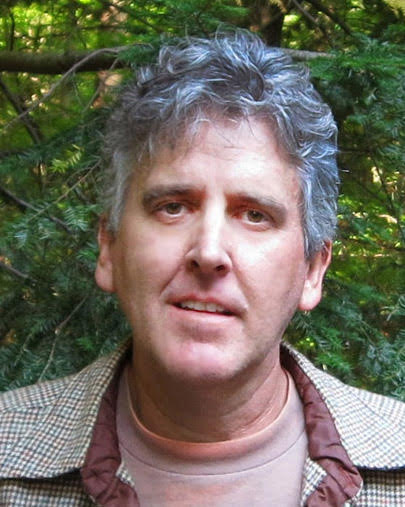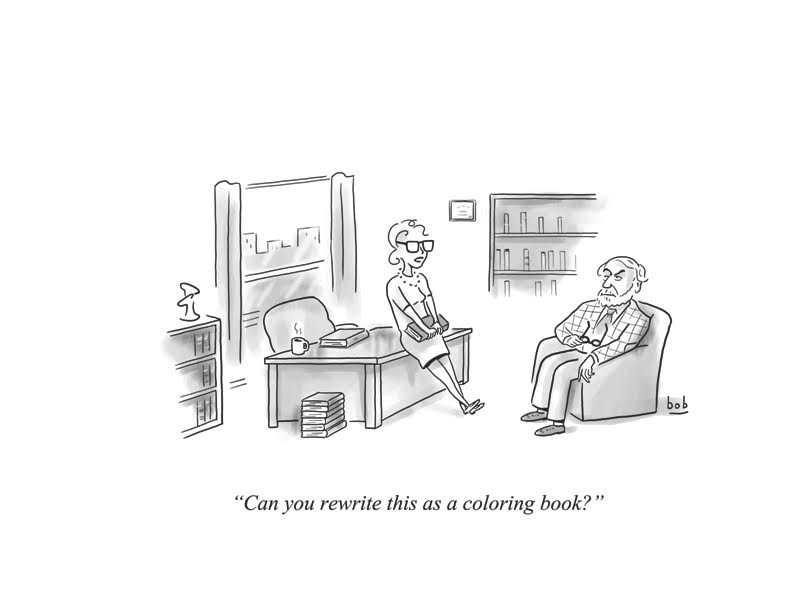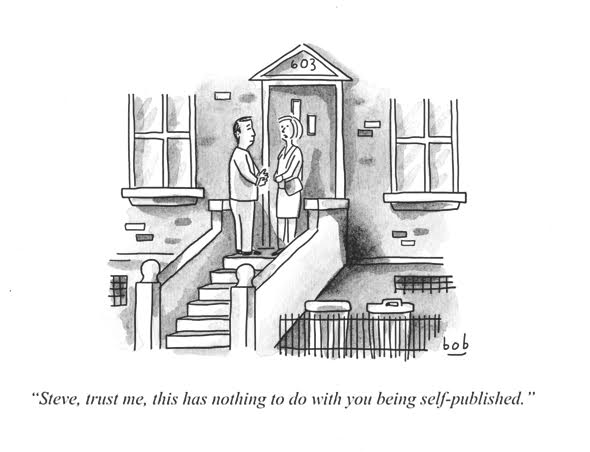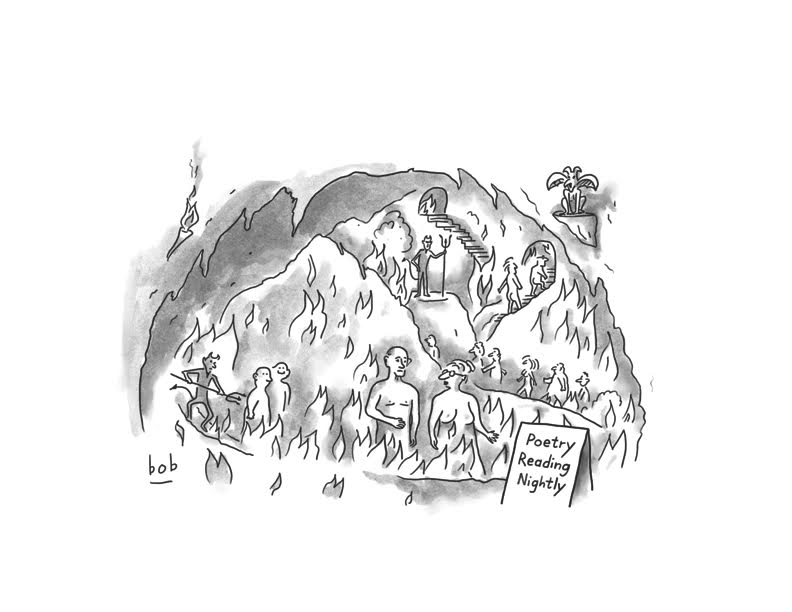
This week’s featured writer is Bob Eckstein, an award-winning humorist, writer, New Yorker cartoonist, and author of the New York Times best-selling Footnotes From the World’s Greatest Bookstores. He has been speaking publicly against online shopping to raise awareness for independent bookstores and teaches writing at NYU. He is the world’s only snowman expert (author of The Illustrated History of the Snowman). His new book is Everyone’s A Critic: The Ultimate Cartoon Book by the World’s Greatest Cartoonists. Follow him on Twitter at @BobEckstein and Instagram at @bob_eckstein.
How did you find your creative niche?
This is an eight hour answer but, foremost, I have surrounded myself with the most talented and funniest people in the world. This collection of scary-talented people inspire and challenge me. They are my sounding board for my ideas and getting encouragement.
Of course, turning everything off so I hear the ideas in the back of my head is my primary way to combat writer’s block.
Did you draw cartoons or write first?
Both. An idea for a joke or cartoon can come from anywhere and in a different way each time. Sometimes I mishear or overhear something at a party… or see something walking down the street or see something down on my sketchbook that triggers a concept. But more often than not, I am writing down a clever observation as a springboard for a drawing to be worked on later.
What makes for a funny illustration or cartoon?
There are no set rules, of course, and that’s really what makes it exciting, but some generalizations can be made. It is often necessary to start with something familiar—a set-up, something using clichés and symbols. Then add an action which creates tension or conflict, and the kicker that is unpredictable that defuses the tension. Of course, this explanation kind of sucks the fun out of it, and I don’t consciously think this way each time I try to craft a joke or cartoon.
Can you share one or two tips for pitching your work to publications?
Show up, follow up, and be nice. Three things that seem so simple… but I can’t tell you how seldom people follow up. Of course, research your perspective client, know them and display interest in them.

Where do you get your ideas?
There’s a store. Seriously, whether you’re an advertiser or writer or designer or comedian or anything being creative, you need to get your mind at some point into a state of playfulness. This could be accomplished in a writing room or with others.
What’s something important you learned in the process of publishing your books?
That when you finish the book, the work just begins. That’s a bit of a lie. I didn’t learn that but kind of knew going in.
During collaborations, how do you maintain a good relationship with your collaborator?
I DID learn this from publishing books… you cannot do this alone. Which is why I surround myself with talented people. But you have to pick well because you are going to be spending long hours with partners and you’re not going to be a perfect fit for everyone. Sometimes there are misunderstandings and rocky times… I try to always express how appreciative I am of their collaboration.
How do you stay productive and overcome blocks?
Everyone has a different size engine and I grew up poor and it’s made me a street rat that often keeps me in survival mode. I try not to let it affect my work but I have a built in drive to produce. I found seeing other people’s work a big motivator. And one thing I will point out is I have tried to eliminate people and things that are toxic. I spent years trying to help people who didn’t wan to be helped and I cost me years.
What strategies do you focus on when cultivating your platform?
Learn and be involved in whatever community, whatever is your niche so you nurture a following. Engage with as many who share your same passions and interests.

If you could go back and change anything about your writing career, is there anything you would choose to do differently?
This sounds like sour grapes, and it’s more popular to profess that one has no regrets. No, I have a lot, so there. One regret that I still pay for is not going to Harvard. If I am asked one more time by a comedy writing room if I worked on the Lampoon I’m going to punch someone. Not sure why one has to go to Harvard to be funny.
What’s your best piece of advice for someone looking to be a humor writer or cartoonist?
I have been a working humorist for forty years so I hope I can’t teach that in a paragraph. I can’t do it in a whole semester when I teach. But I’ll start with one basic tip. Accept rejection. It is a large part of everyone’s career. Okay, one more. Stay in your own lane—meaning don’t compare yourself to anyone else. You’ll drive yourself crazy. Just do the best that you can do.
What are you working on next?
I am finishing four books: a graphic novel of a fictional 1850 diary, another cartoon collection, a humorous book on naming your cat and a sequel to my greatest bookstores but with libraries now. I’m writing a screenplay on my Illustrated History of the Snowman book and trying to produce a TV show based on that same greatest bookstores book.

Can you share 1-3 of your favorite writing-themed comics?
I sincerely believe that the best cartoonist working right now is my friend Ron Hauge who can be found on Instagram. (He worked for the Simpsons and Seinfeld.) I’m sorry to say it, but there are not many comics that excite me at the moment out there or in publications. Which is why I’m producing the Ultimate Cartoon Book series, because I miss the old New Yorker cartoons so much.
Have an idea for a comedy project, speech, or comic? Pitch your idea to us below, and we’ll match you with a writer like Bob who can help you bring your vision to life.
